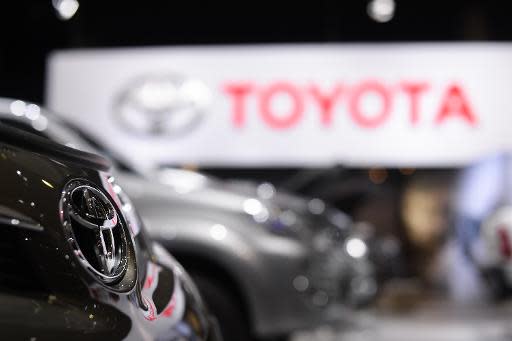Toyota, Nissan to recall more than 3 mln more cars over airbags

Toyota and Nissan, Japan's two top automakers, on Thursday said they will recall more than three million more cars globally because of concerns over airbags involved in eight deaths worldwide.
"Toyota will now globally expand its recalls to involve approximately 2,860,000 additional vehicles equipped with certain front passenger airbag inflators," the automaker said in an email.
Nissan said it would recall 198,000 units worldwide, while Mitsubishi also said it would call back 120,000 vehicles.
Airbags made by Japanese parts maker Takata have sparked a global recall crisis for many automakers.
Toyota alone says a total 12.66 million units are now affected, but Honda, Japan's number three automaker, has been the hardest hit, with more than 19 million vehicles recalled globally.
Tokyo-based Takata last month agreed to double a US recall to a record more than 30 million vehicles made by some of the world's biggest automakers.
The defect -- thought to be linked to a chemical propellant that helps inflate the airbags -- can cause them to deploy with explosive force, sending metal shrapnel hurtling toward drivers and passengers.

 Yahoo Finance
Yahoo Finance 